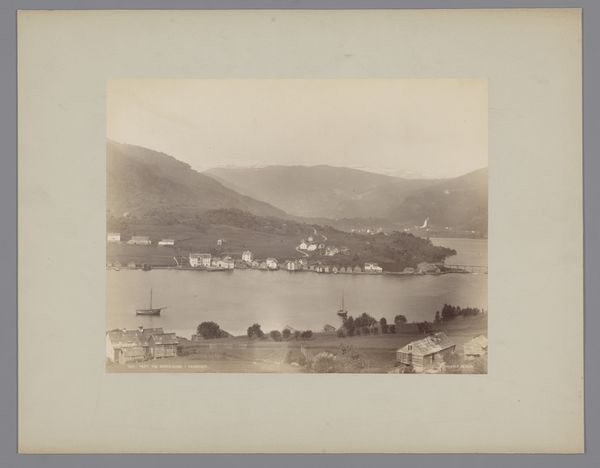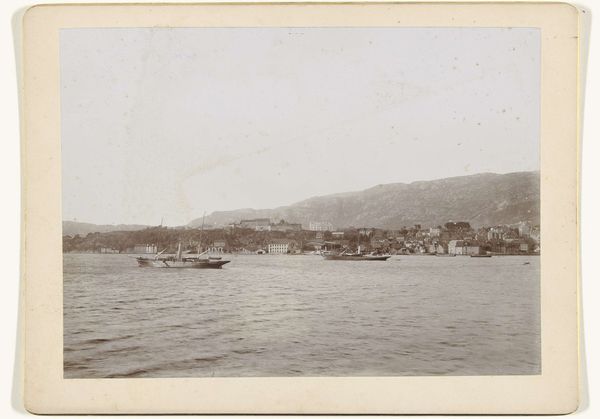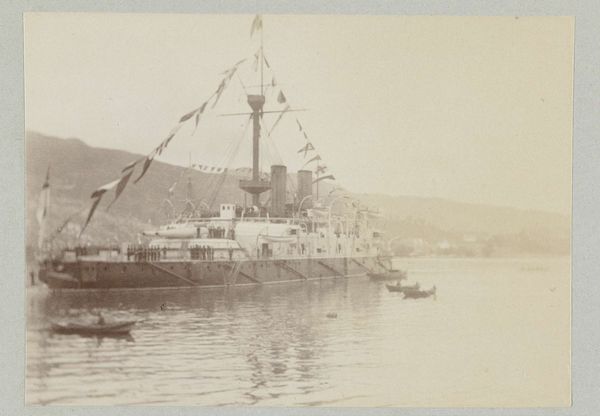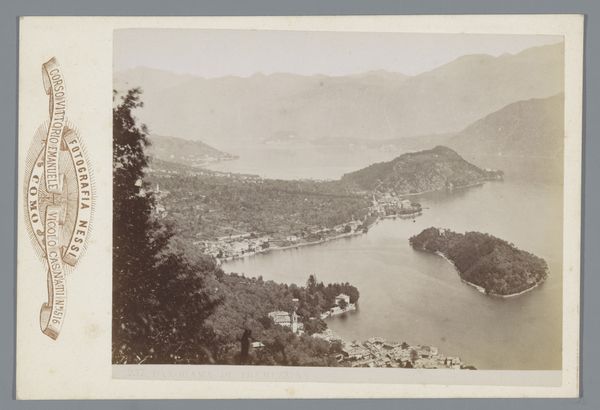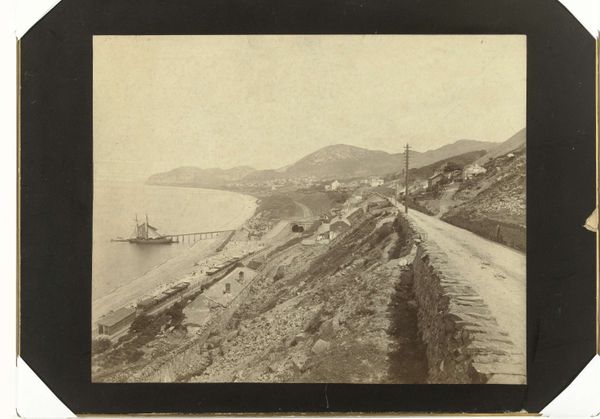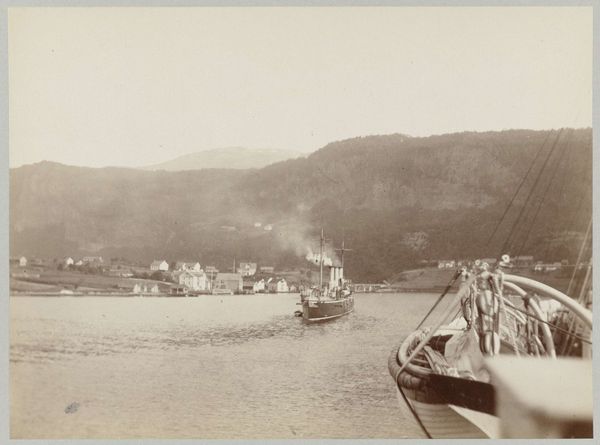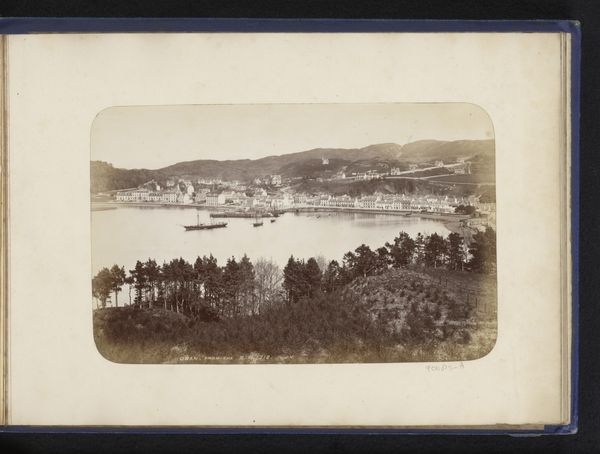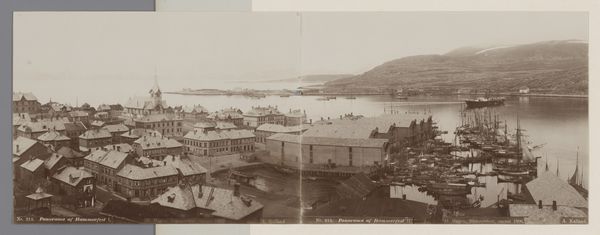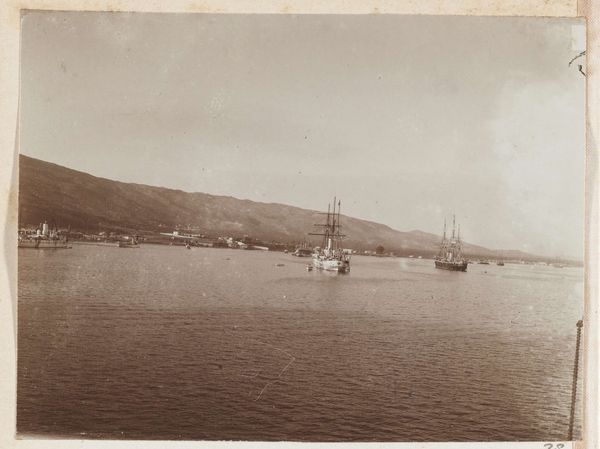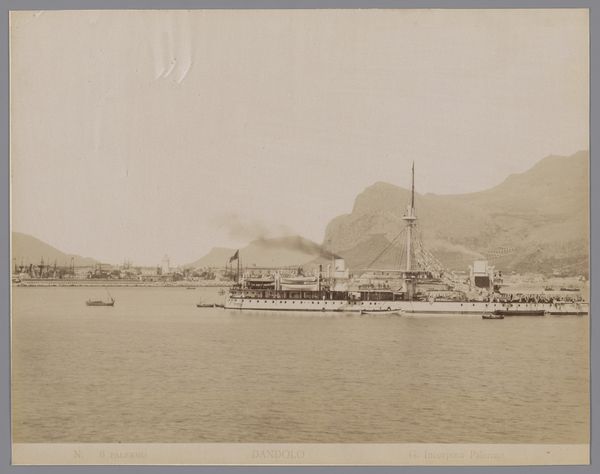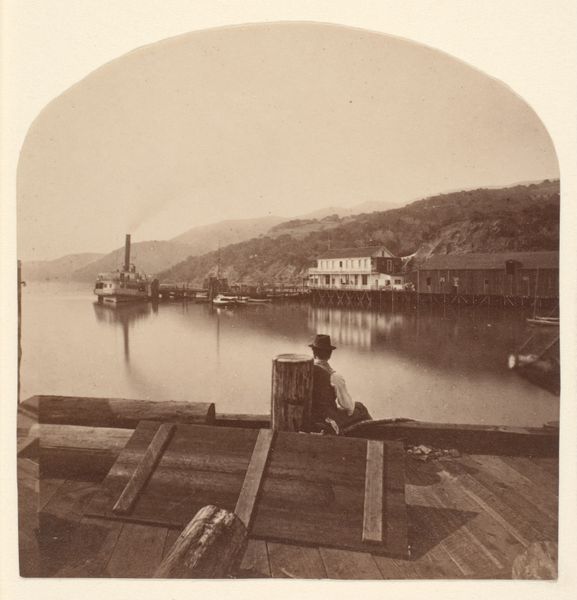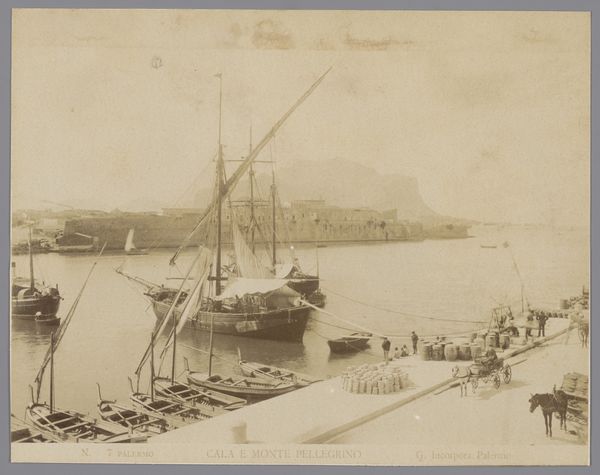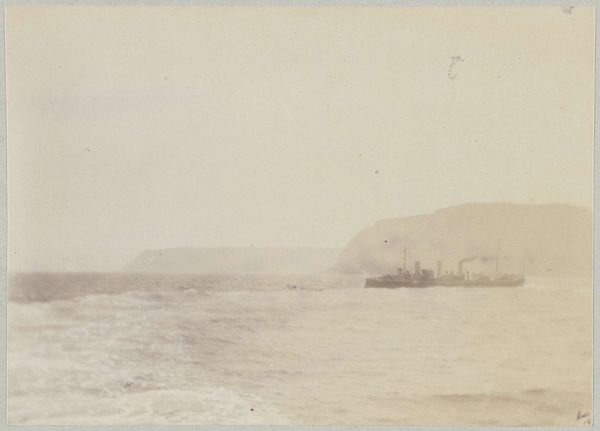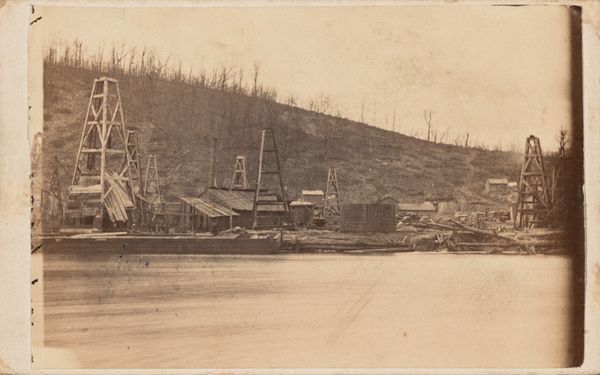
photography
#
photo of handprinted image
#
photo restoration
#
pictorialism
#
landscape
#
photography
#
photojournalism
#
cityscape
#
remaining negative space
Dimensions: height 215 mm, width 270 mm, height 305 mm, width 399 mm
Copyright: Rijks Museum: Open Domain
Curator: We’re looking at "Schip 'Kaiser Wilhelm II', Bergen, Noorwegen," a photographic work, dating back to somewhere between 1870 and 1900, by Knud Knudsen. Editor: Wow, this is such a dreamlike photograph, isn't it? The way the ship is sailing into the unknown and all the fog surrounding the land mass. Gives me the chills but also fills me up with joy! Curator: Indeed. Knudsen's photography provides significant insight into the societal dynamics of late 19th-century Norway. By focusing on maritime subjects, particularly ships like the Kaiser Wilhelm II, he inadvertently captured a sense of burgeoning industrialization. Note the way he framed the shot. Editor: Right? You can feel the grandness of the ship. Like, BAM! Industrial whoosh, but with a calm tone and gentleness to it. The haze, too. It’s all very deliberate. I bet he was one cool cat. Curator: Knudsen was more than a "cool cat"; he was a key figure in documenting Norwegian identity. "Schip 'Kaiser Wilhelm II'," for example, can be read as a symbol of the country's connection to global trade. But that perspective should take a closer look to the remaining negative space surrounding the ship to understand how it is connected. What's your view about it? Editor: Good point. See the blank space hugging the image? Totally invites contemplation. It’s as if it whispers, “Hey, slow down, dreamer. Let the scene speak to your core." It urges me to imagine untold narratives beyond what is visible and makes the photograph even more dramatic. Curator: Exactly. That's a perspective rooted in phenomenology; considering the image beyond just documentation but instead as a deeply personal experience. Editor: Totally! Thanks to it, I’m ready to sail! But also ready to ponder the Norwegian economy while wearing a cool wool sweater. I dig it. Thanks, Knud! Curator: Well, the pleasure was all mine. It’s these intersections of the global with the deeply local, that reveal photography’s complex role during that era.
Comments
No comments
Be the first to comment and join the conversation on the ultimate creative platform.
